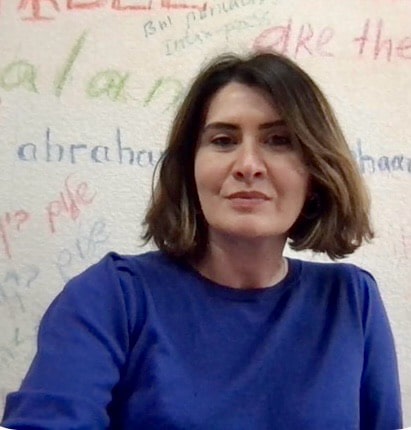Georgian Dream attacks online media and threatens criminal cases
Georgian Dream attacks online media
Georgian Dream parliamentary speaker Shalva Papuashvili has openly attacked independent online media in Georgia, threatening them with criminal prosecution. His attacks followed a propaganda article published by the pro-government channel Imedi, which claimed that online media act against the country’s interests and receive large sums of money for doing so.
- Reporters Without Borders puts Bidzina Ivanishvili on Press Freedom Predators list
- In six months, Georgia passed five laws restricting media. Here’s a breakdown
At a briefing on 25 November, Shalva Papuashvili claimed that online media are bypassing the law to obtain funding, which he said constitutes a criminal offence. He added that “law enforcement agencies are monitoring these processes, and if violations are detected, appropriate measures will be taken.”
Without providing any evidence, Papuashvili accused online media of “transferring money through various fraudulent schemes”:
“As for these schemes, there is an attempt to circumvent Georgian law. They have to receive money in Estonia, bring it here in suitcases, transfer it through different countries using cryptocurrency… They resort to criminal offences, including tax evasion and other violations.”
Papuashvili also said that “everything will be under control”:
“Competent people are monitoring these processes. Wherever they see signs of a crime, there will be an appropriate response. There is legislation, and everyone — in Brussels and Stockholm — must respect Georgia’s independence and prevent money transfers via cryptocurrency.”
He further claimed that online media are no different from NGOs, and their journalists are simply “activists with microphones.”
Propaganda piece by Imedi and the discrediting of online media
Papuashvili’s statements closely mirrored the talking points of a pro-government Imedi TV segment aired two days before his briefing. On 23 November, the channel broadcast a weekly programme titled “Network of Foreign Intelligence Services”, which accused independent online media of collaborating with foreign intelligence agencies.
The segment claimed that many journalists working in online media were not real journalists but so-called “national intelligence operatives” acting on specific instructions. Online media were accused, without any evidence, of “coordinated actions against the country to the detriment of its interests.” The programme provided no proof, facts, or documents to support these claims.
The main focus of the segment was the joint campaign by 22 online outlets called “The Light Must Not Be Extinguished”. The campaign began in August after the Georgian Dream party’s repressive laws cut off all avenues for donor funding.
On 13 August, the websites of these outlets temporarily went offline, displaying a black screen for an hour. The media later explained that this was a warning signal: they wanted readers to understand that if independent media disappeared, the “light” would truly go out. As part of the campaign, the outlets created a website allowing anyone to make donations to support independent media with a single click.
In the Imedi segment, the campaign was portrayed as an anti-state underground network allegedly receiving millions of dollars.
The segment accused the media of coordinated anti-state actions solely because they report on major events in the country and ask critical questions, such as coverage of Eagle Hills’ project — described by Georgian Dream as an “unprecedented Arab investment” — and the proposed education reform.
In addition to the 22 outlets involved in the campaign, the segment also mentioned other online media, including JAMnews.
Response of independent media to Imedi TV
The outlets involved in the campaign responded to Imedi with a joint statement. They filed a complaint with the self-regulatory body, demanded a retraction, and requested the opportunity to hold a live broadcast in response to the defamation.
“The political environment in Georgia has never been tolerant of journalists defending free and professional standards, but what the Georgian Dream party and its associated propaganda machine are doing recently goes beyond all legal and ethical boundaries,” the statement reads.
The outlets said that Imedi is targeting media whose professionalism, reliability, and reputation have never been questioned, bombarding them with fabricated news and lies.
They explained that, with public support through the campaign, they raised a total of 100,000 GEL in donations over three months. These funds allowed the outlets to maintain their offices and pay necessary fees to keep their websites running.
The statement emphasises that the main goal of the authorities’ campaign against independent online media is to disrupt their work:
“The authorities are concerned about the issues raised on socially significant topics, including the Eagle Hills project and higher education reform. They want media to stop covering current events in the country, ongoing protests, the political crisis, corruption scandals involving high-ranking officials, human rights violations, urgent social problems, and more. That is why they are attempting to discredit independent outlets and create conditions that make our existence impossible.”
Georgian Dream attacks online media




















